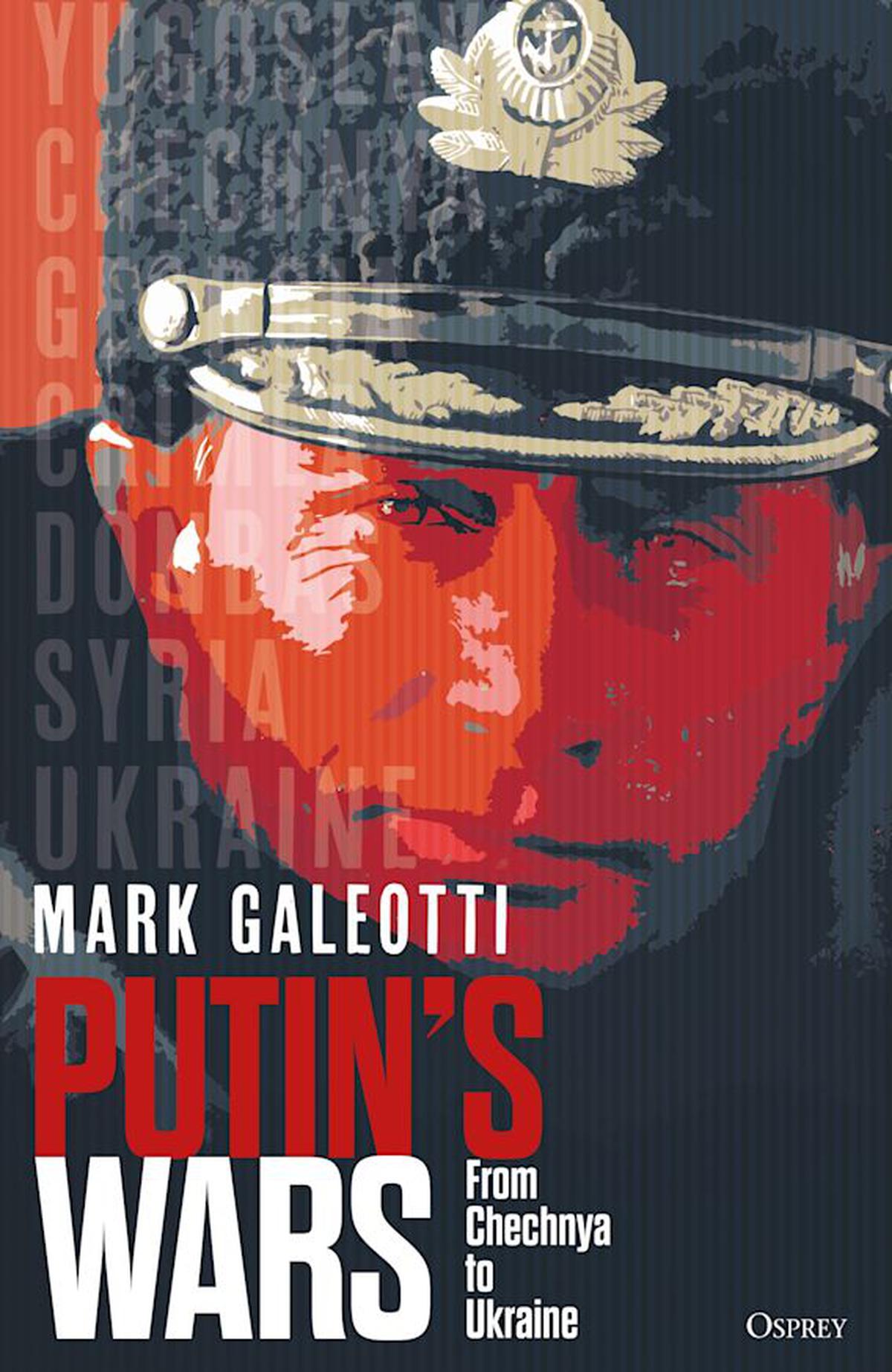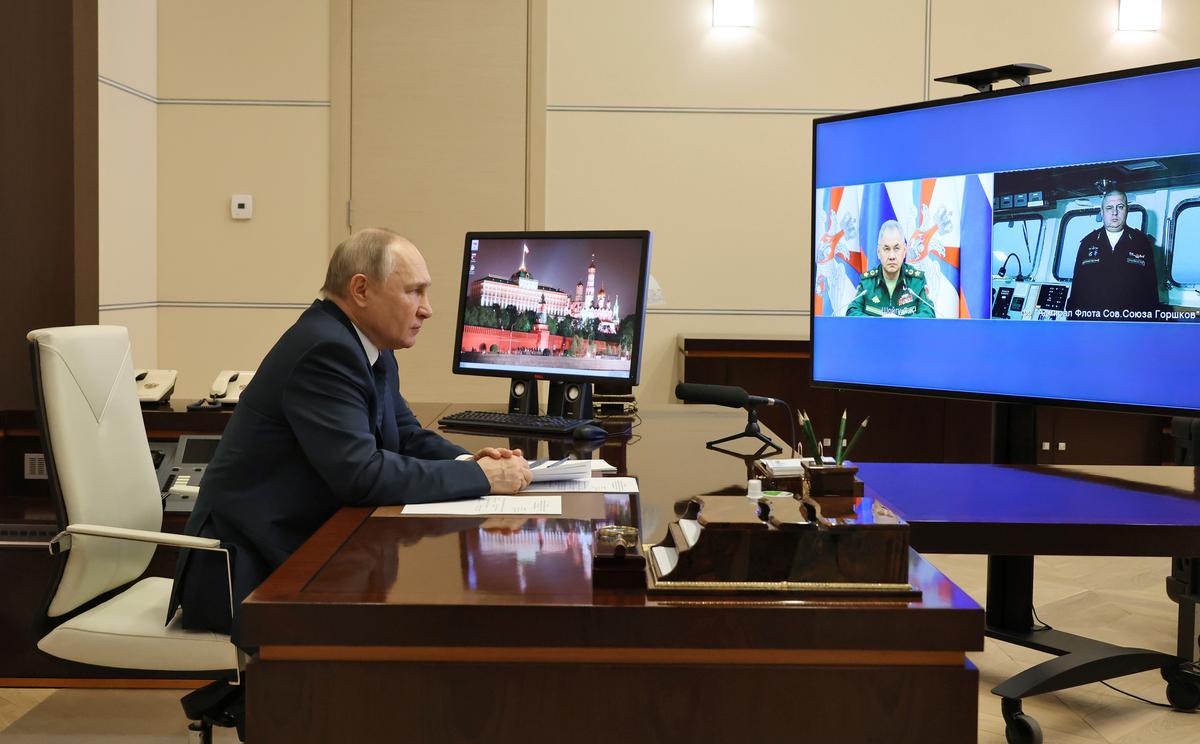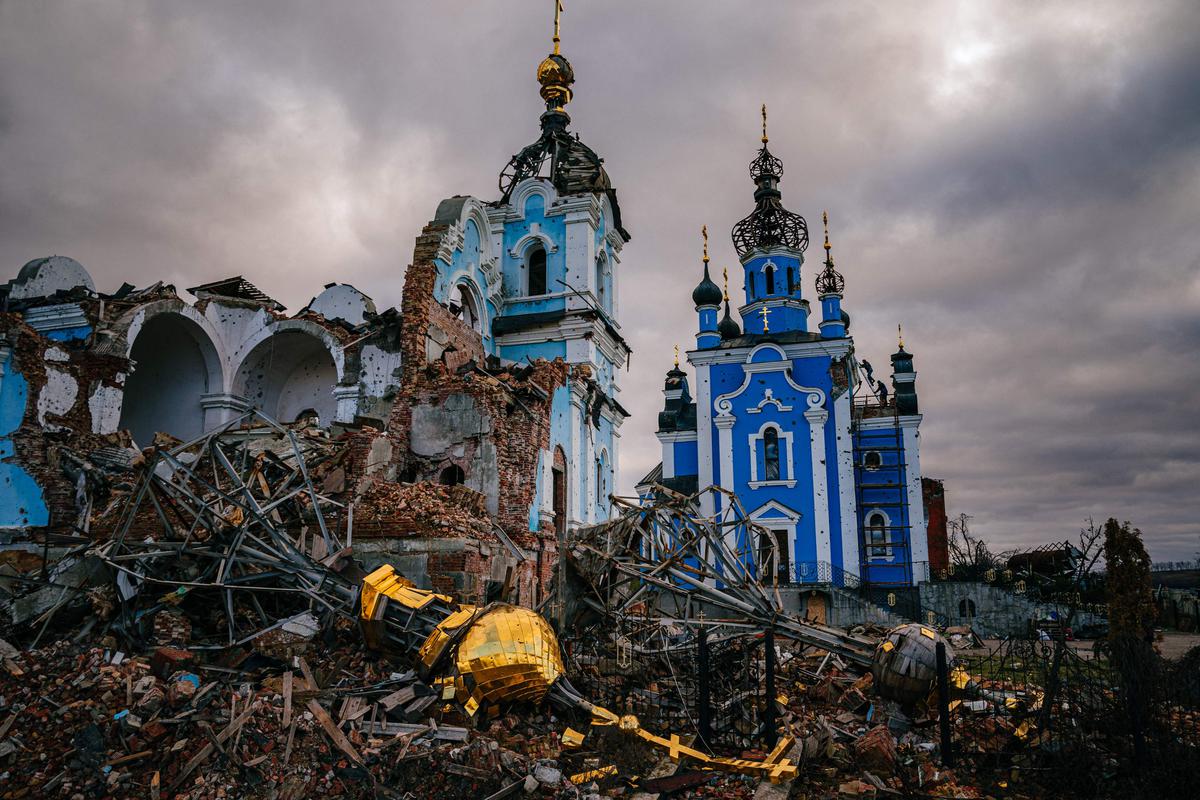Mark Galeotti says, ‘Part of what Putin is trying to do in Ukraine is that he really believes the West is trying to dominate Russia.’ , photo credit: special arrangement
In more than 30 books about Russia, author Mark Galeotti uncovers and explains the factors behind the rise of President Vladimir Putin and his remarkable successes in wars, from the onslaught of terrorism in Chechnya amid post-Soviet chaos Up to the attack of Ukraine last February. his latest book Putin’s Wars: From Chechnya to Ukraine a prophet follows 2019 book, We Need to Talk About Putin: How the West Gets Him Wrong, on why the world should have paid more attention to Moscow’s moves over the past few years. Edited excerpts from the interview.

When you first finished the book ‘Putin’s Wars’, you didn’t have the Ukraine war, did you?
Yes. I completed the manuscript and sent it to publishers two weeks before the actual invasion. My first thought after the invasion was – ‘How terrible for 40 million Ukrainians’; And my second thought was, ‘How terrible for 140 million Russians’. But my third thought was how terrible it was for me. What followed was a frantic moment of negotiations with publishers. The book has a chapter that takes the situation up to June 2022 and tries to see how it might develop, even though it has been a struggle that has clearly defied predictions.
In fact, it defied even the predictions of the people of Russia. Why do you think so many people thought Putin wouldn’t do it?
I think the answer is that many people within Russia were completely blindsided that this was not going to happen and that included Foreign Minister Sergei Lavrov. The second reason, to be blunt, didn’t make sense. By the time Putin invaded, he was virtually winning his conflict with Ukraine: he had amassed a large force on the Ukrainian borders; The Ukrainian economy was in free-fall and had a stream of Western dignitaries visiting Moscow, putting Putin in exactly the position he likes, in which he is at the center. If he really were this grand geopolitical mastermind, Putin would have allowed the situation to continue as it is.
You refer to Putin as a 19th century geopolitician in the 21st century. what do you mean?
Putin views the world in an essentially colonial way… that there are two types of countries, countries that are able to exert their influence over others and countries that are victims of such processes. Part of what he’s trying to do in Ukraine is that he really believes the West is trying to dominate Russia. In some ways, he is trying to demonstrate that Russia belongs in the former category, that Russia is an imperial country rather than a subordinate nation.
In India, there is some sympathy for the Russian narrative that it was NATO’s expansion that made Russia feel threatened, especially after the Bucharest summit in 2008, which declared Ukraine and Georgia on the ‘wait-list’ for membership. went.
I’ve got some sympathy for that scene. There is no escaping the fact that Western policy toward Russia is in many respects not only poorly formulated, but catastrophically counterproductive. But ultimately NATO is a defensive alliance, and it was not “engineering this expansion”, the countries wanted the security of being under NATO’s guarantee. It’s not that Ukrainians were being forced into NATO, quite the contrary. But NATO kind of gave vague guarantees that Ukraine would someday be a member, and it gave Ukrainians false hope, so it really was the worst of both worlds.

Russian President Vladimir Putin attends a video conference on a TV screen with Russian Defense Minister Sergei Shoigu, and Igor Krokhmal, commander of the frigate named ‘Admiral of the Fleet of the Soviet Union Gorshkov’, in Moscow, Russia. Mark Gelotti says, ‘Russia is no longer going to be a military superpower and it will take at least a decade to reorganize Russia’s military which has been destroyed over the past year.’ , Photo Credit: AP
In the book you predict that this may be Putin’s ‘last battle’. How do you think he will emerge from this, and will Putinism survive even if Putin’s career doesn’t take off?
Putin is both a survivor and a rational actor. I don’t think we’re going to see those kind of nightmare scenarios of us turning to nuclear weapons or anything like that. I’ll turn the phrase around and say Putin may live, but I think Putinism won’t in the sense of a particular model of how you run the country and a vision for Russia’s place in the world. That’s broken. Russia is no longer going to be a military superpower and it will take at least a decade to reorganize Russia’s military which has been destroyed over the past year. As for Putin himself, he’s 70 years old, he may have health problems, and there’s all kinds of misleading rumors going around, which I think we need to be very careful about, But still, this is a person who is moving in a highly complex and stressful environment. However, I do not think that the Russian regime is on the verge of imminent collapse. It is more that it is losing its spare capacity. Regimes can be pretty much brain dead and still live for years. Sure enough, the Soviet Union did. Tsarist Russia did. So we may be in the closing, dying years of Putin and Putinism, but that doesn’t mean it’s going to happen anytime soon.

Construction workers climb onto the roof of a destroyed church in the village of Bohorodichne amid Russia’s invasion of Ukraine. The Russian army launched a heavy assault on Bohorodichen in the Donetsk region. , photo credit: AFP
Articles on Russia, Ukraine
With the war in Ukraine, which began with Russia’s invasion in February 2022, still ongoing, there is a clamor to interpret the past, present and future of the conflict. russia’s war on everyone Keir Giles, a new book to be released at the end of January, explores how and why Russia pushes for more power and influence wherever it can reach, far beyond Ukraine, and not What does this mean not only for governments but for common people. story of russia A 1,000-year history of Russia, by Orlando Figes, developed in a flat region without natural boundaries. “Its position made it vulnerable to foreign invasion,” says Figgs in the introduction. From the rise of Moscow, the founding core of the Russian state, to Putin’s wars in Ukraine, history shows that Russia has fought wars beyond its borders to keep neighboring countries vulnerable, and to keep hostile powers at arms length. Advancing security, Figgins argues. Luke Harding’s war reports from the Ukraine are collected in his book Invasion: Russia’s Bloody War and Ukraine’s Battle for Survival, When Russian forces invaded Ukraine on February 24, Harding was in the Ukrainian capital, Kyiv, and reported the resilience he saw on the ground under the leadership of President Volodymyr Zelensky. In addition to writing portraits of leaders on both sides, Harding provides an intimate glimpse of ordinary people affected by the war. Last May, Mark Andrejic edited a collection, writing from ukraineContains fiction, poetry, non-fiction and essays since 1965. The anthology presents a wide assortment of styles, “lyrical, experimental, surrealistic”, and covers a variety of topics such as history, gender, and nature that “reach out”. Important issues for the people of Ukraine ”.
suhasini.h@thehindu.co.in